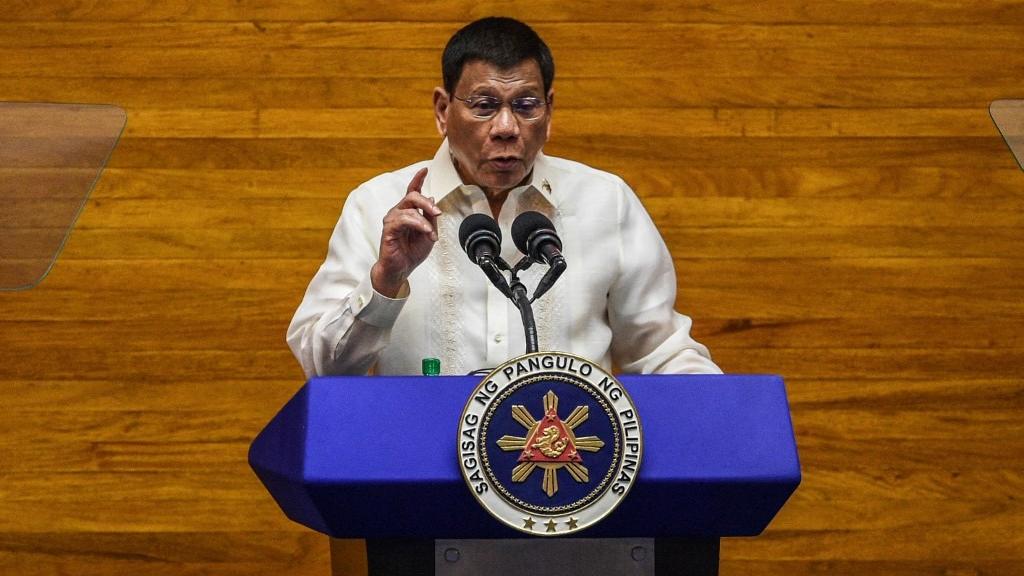 In this July 26, 2021 photo, Philippine President Rodrigo Duterte delivers a speech during his annual state of the nation address at the House of Representatives in Manila. (JAM STA ROSA / POOL / AFP)
In this July 26, 2021 photo, Philippine President Rodrigo Duterte delivers a speech during his annual state of the nation address at the House of Representatives in Manila. (JAM STA ROSA / POOL / AFP)
MANILA - Philippine President Rodrigo Duterte has included a bill seeking to ease the country's strict bank secrecy rules in his list of legislative priorities in his final year in office, the central bank said on Wednesday.
The move comes weeks after a global dirty money watchdog - the Financial Action Task Force (FATF) - added the Southeast Asian country to its grey list of countries under increased monitoring, along with Haiti and South Sudan.
The Bank Deposits Secrecy Bill will equip the BSP with tools "necessary to prove the commission of fraud, serious irregularity or unlawful activity if reasonable basis exists", the central bank said in a statement
The Bangko Sentral ng Pilipinas (BSP) has vowed to work to ensure compliance with FATF recommendations and exit the list no later than 2023.
ALSO READ: Central banks are turning to big data to help them craft policy
The Bank Deposits Secrecy Bill will give the BSP increased investigative powers, making it easier for the regulator to examine suspicious bank accounts, and impose heavy penalties.
It will equip the BSP with tools "necessary to prove the commission of fraud, serious irregularity or unlawful activity if reasonable basis exists", the central bank said in a statement.
The BSP has long pushed for such measures, but attempts by previous administrations to amend or repeal the law to combat tax fraud failed amid fears about breaches of privacy or being used to harass political opponents.
Business groups, including the Bankers Association of the Philippines, have thrown their support behind the bill.
In a bid to allay concerns about privacy, the BSP said the results of any probe would not be arbitrarily disclosed, and may only be shared with courts and other regulators if it was necessary to prevent or prosecute a crime.
Despite its strict anti-money laundering rules, the Philippines was at the center of some high-profile bank frauds in recent years, including the US$81 million cyber heist in 2016 involving money stolen from the Bangladesh central bank account at the Federal Reserve Bank of New York.
READ MORE: Philippines says still has monetary space after easing steps


